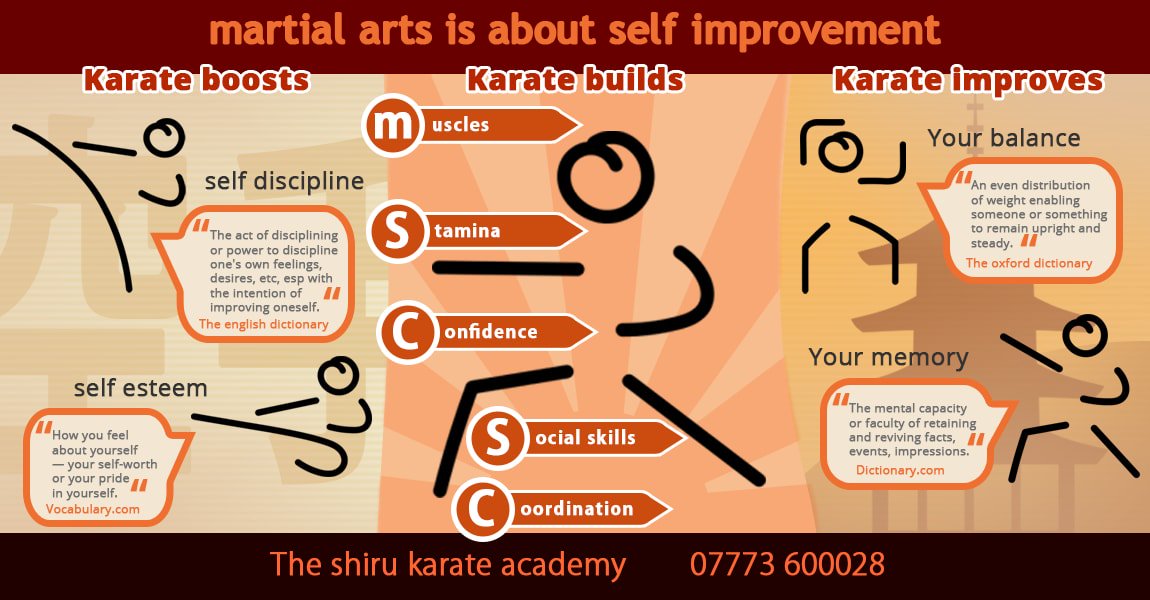The Impact Of Young Age Martial Arts Involvement On Scholastic Achievement And Attention
The Impact Of Young Age Martial Arts Involvement On Scholastic Achievement And Attention
Blog Article
Post Author-Holt Kirby
Step onto the mat of knowledge and uncover the surprise power that youth fighting styles possess.
Like a well-sharpened sword, the effect of these ancient methods on scholastic performance and emphasis is a pressure to be considered.
As you delve into the midsts of this conversation, you will certainly discover the capacity for boosted cognitive capabilities, improved focus abilities, and a considerable increase in scholastic efficiency.
However the trip does not finish there, for real keys lie within the pages yet to be discovered.
Enhanced Cognitive Abilities
Enhanced cognitive capabilities have actually been observed in youth who participate in martial arts. By taking what does kajukenbo mean in fighting styles training, you can boost your cognitive functions such as interest, focus, and memory. The physical movements and strategies involved in fighting styles require mental coordination and focus, causing improved cognitive skills.
Studies have actually shown that routine engagement in martial arts can improve data processing rate and executive features, which are important for academic success. Martial arts training likewise helps to improve analytical abilities and decision-making abilities, as specialists discover to examine and react promptly to different scenarios.
Furthermore, fighting styles method advertises self-control and self-control, which are crucial qualities for effective understanding and scholastic accomplishment.
Boosted Concentration Skills
Exactly how can martial arts training boost your capacity to focus?
Fighting style training can considerably improve your focus skills. With the practice of numerous strategies and motions, you're required to concentrate your focus on the job available. This continuous interaction helps to train your mind to stay existing and concentrated.
Fighting style likewise teach you to block out interruptions and maintain a high degree of focus even in stressful circumstances. The repetition of activities and strategies during training aids to create muscle memory, allowing you to carry out actions with accuracy and effectiveness.
In addition, martial arts training usually includes psychological exercises such as reflection and mindfulness, which even more boost your capability to focus and maintain emphasis.
Boosted Academic Efficiency
Martial arts training can considerably enhance your academic efficiency by fostering self-control, emphasis, and self-esteem.
When you exercise fighting styles, you find out to establish goals, create regimens, and handle your time properly. These abilities equate into improved research study routines and much better scholastic efficiency.
Martial arts likewise teach you to stay focused and concentrate on the job handy. This enhanced capacity to focus can considerably benefit your knowing experience, allowing you to take in and retain info better.
In best martial art for older beginners , the self-confidence acquired via martial arts can positively affect your scholastic performance. Counting on yourself and having a favorable way of thinking can aid you conquer challenges, take threats, and reach your complete academic possibility.
https://self-defense-man-vs-woman29630.blogpayz.com/35091977/why-taekwondo-is-an-exceptional-selection-for-your-kid-s-martial-arts-trip have a significant influence on scholastic performance and focus.
Study reveals that trainees that take part in martial arts experience boosted cognitive capabilities, improved focus skills, and improved scholastic performance.
Actually, a study located that students that participate in normal martial arts training have a 15% greater grade point average compared to those who don't.
This statistic highlights the favorable connection in between fighting styles and academic success, emphasizing the relevance of including such activities right into the lives of young people.
